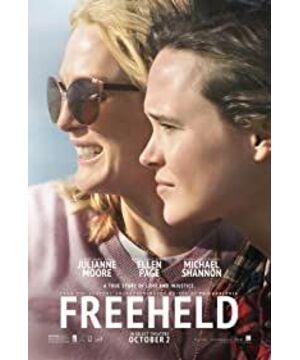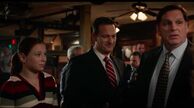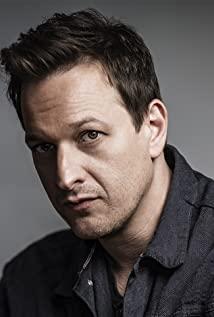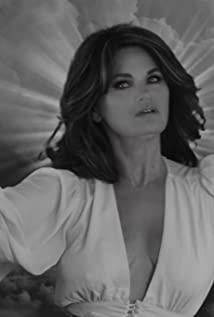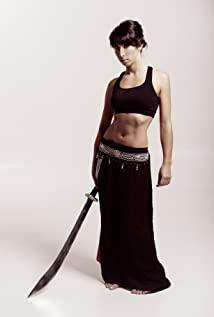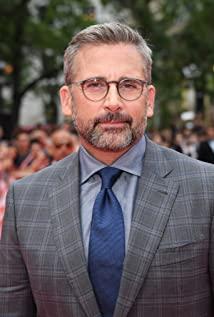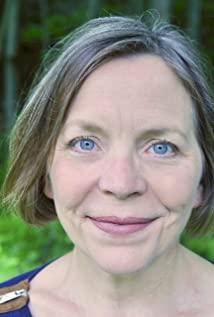The film tells the story of female police detective Laura Hester who was unfortunately found to have terminal lung cancer when she was living with her girlfriend Stacey. She wanted to adopt her post-death pension to her partner, Stacey, but was rejected by the local government. Heterosexual partners refused. Her partner said that she "has fought for justice all her life, but she has not been treated fairly." This incident has attracted public attention, and more and more people with equal rights have joined the fight for her equal rights.
This is a true story. As early as 2007, director Cynthia Wade produced a 47-minute documentary, which truly recorded the two parties' struggle for equality with blood and tears. In the 2015 film, except for I tried my best to restore the picture at that time, and also added the sweet past of the two heroines who met and fell in love. At the same time, some more cinematic renderings were added to the paragraphs of the struggle between the rear and the tail. I believe that the story itself, no matter how it is told, has enough tension to hit people’s hearts, and I don’t need to go into too many words here, so the story is left to you to feel, and here is just another lovely aspect of the movie. : The various details of life that the protagonists give to the characters.
Detective Laura Hester, played by Julianne Moore, is a very hardworking woman, born to death, independent, carrying a gun even on dates, but she will drive hours to another city on weekends. Just looking for girls to play volleyball, because everyone in the city where she lives knows her and can't relax. Such a detail reveals that Lola is a person who completely separates work and private life, maintains an image in public, and hides her real needs from the public. In fact, such a living state was not her original intention, but was imperceptibly driven by the world. In reality, Lola herself was reminded by her boss before she joined her job that she hoped that she must hide her sexual orientation in her post. Later, we saw that when Lola happened to meet a male colleague at the gay bar, she immediately turned to leave through the back door, and the male colleague also found Lola very worried the next day and hoped that she would keep the secret. It fully reflects the attitude of the society towards gay workers at that time, "I don't ask, you don't tell".
These detailed descriptions have increased the difficulty and weight of this love, and also made Lola, who stood up in the later stage, so brave and touching. Moore is very good at capturing the complex hearts of female characters. There is always a kind of ego in the characters she plays, such as Laura Brown in "The Moment", such as Cathy in "Far From Heaven", she can always put Those characters who are pushed to the brink of collapse are very penetrating, her eyes are so fragile and sensitive that they will be hysterical at any time, but also hide the tenacity that is unwilling to let go. Her explosive power is completely inward, so I often worry about her. The character will suddenly collapse and then commit suicide. But in this role, she has restrained that vulnerability. She is still sensitive, but she is completely firm. Although it is still not "tough guy" compared with Lola herself in the documentary, but it adds a touch of distress that you want to touch.
Ellen Page played Lola's lover, Stacey, who is younger than Lola, but not childish. When she saw Lola, she began to let the ball flirt with her sister, took the initiative to ask for a number, and built a love nest together to build a small courtyard by herself. All kinds of girlfriends are full of power. Allen's refreshing and energetic temperament makes the paragraphs where the two fall in love seem very bright and sweet, but perhaps because of their petite stature, the scenes where the two cuddle up in pain occasionally seem like a mother-daughter love. Perhaps in order to make up for her weakness in size, the film also added a lot of details to highlight her personality. For example, she was a little girl who defeated a strong auto mechanic and won a new job; Calling her a "dead gay", she picked up a steel pipe and wanted to teach them a lesson; when Lola was undergoing chemotherapy while discussing pension issues with her colleagues, she hardly listened to the countermeasures, and only cared about Lola's health and well-being. Not taking every sip of the healing mist, even caring to the point of being angry, these details make the character endearingly bluntly endearing, as she finally said in public, she didn't understand at first why Lola valued these so much, yes For her, she is just an ordinary person, living in a house co-created with her lover, she just wants to keep this house and keep the memory of loving each other. This speech was originally Lola's lines. The arrangement of the film made Stacey more appealing. Ellen's sincere performance is not even like a performance, but like her own declaration.
In fact, Allen himself was one of the film's producers, and followed up the work from script writing to casting for seven years. Coming out in 2014 was more or less influenced by the making of this film. Encouragement, perhaps for her, playing this role is not only an acting job, but also a precious process of mutual reflection and recognition with herself. After completing the film, Allen released the gay documentary "Peering Together" in 2016, in which he personally visited the living conditions of gays in various countries, humorous and thoughtful. It is now in the second season. It seems that after coming out of the closet, she has found With the career that he has devoted himself into physically and mentally, the small body contains much more energy than the previous audience expected.
Just to mention a few equally good supporting roles. Laura's old police partner played by Michael Shannon is sympathetic and reliable. From the beginning of being unacceptable to the end of doing her best for her friend, she is very moving. Luke Grimes played another gay police officer's position change is also very interesting, from the beginning to covert for work, to openly coming out in front of his colleagues, and finally he and a few colleagues went to the scene to support Lola At the time, the film used a wide-angle subjective lens from Lola's perspective. This shot is very infectious. The audience can substitute the perspective of Lola in the wheelchair and see the former colleague walking from the front of the road with a smile, standing behind him, and walking towards equal rights. Lu is no longer alone, the intention of the camera is clear, it is to stir up emotions, but it also touches the point. I believe that if a gay audience sees this scene, they will feel more empathy.
(↑The translation of the subtitles of the version I read was a bit vague. The original text used another, which means "I'm going to support another gay policeman." In fact, he has already indicated that he has come out of the closet.)
Ten years have passed since this story, and today's gay Equality is still in full swing. The calm and concise word Laura wanted: Equality, wasn't something that could be achieved by the tiny effect of tapping on a keyboard, it was something that many people spelled out with their flesh and blood. With the achievements of affirmative action in western countries in recent years, it is reflected in the film industry that LGBT films are good in both quantity and quality. There are co-movies like "Rejected Life" that record the struggle for affirmative action, and there are also films like "Moonlight". "Boy" does not talk about equality and only talks about feelings. More and more types of films have added gay characters, and gay films are discussing more and more diverse things. I think this is a good thing, more gay individuals The story has entered the public eye through the means of film art, which can gradually make this group less general, vague and unfamiliar.
So comrades, don't give up the pursuit of equality, so that there will be no more rejections in life.
View more about Freeheld reviews


